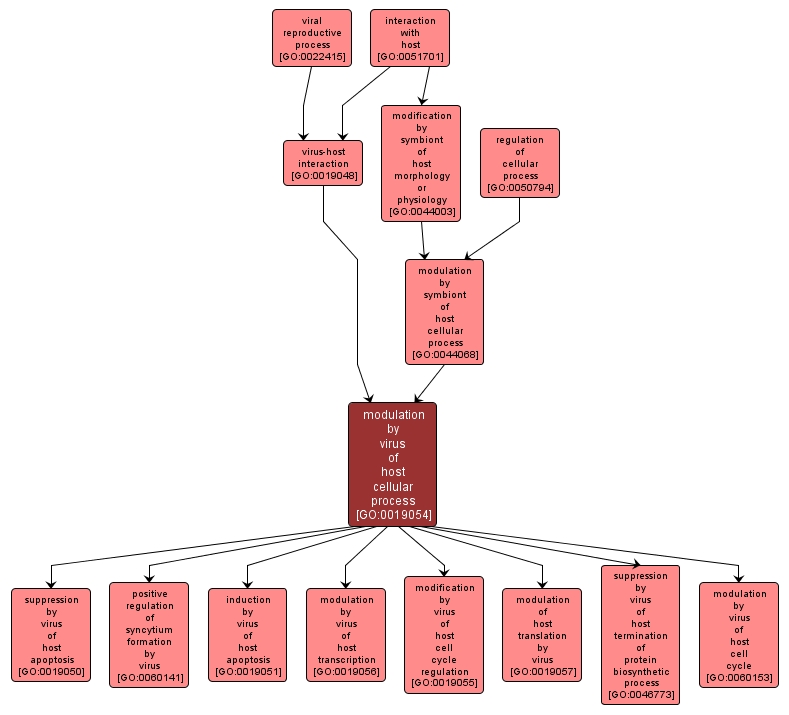GO TERM SUMMARY
|
| Name: |
modulation by virus of host cellular process |
| Acc: |
GO:0019054 |
| Aspect: |
Biological Process |
| Desc: |
The process in which a virus effects a change in the cellular pathways and activities of its host organism. |
Synonyms:
- viral host cell process manipulation
- modification by virus of host cellular process
- regulation of cellular process in host by virus
- modulation of cellular process in host by virus
- regulation of host cellular process by virus
- regulation by virus of host cellular process
|














